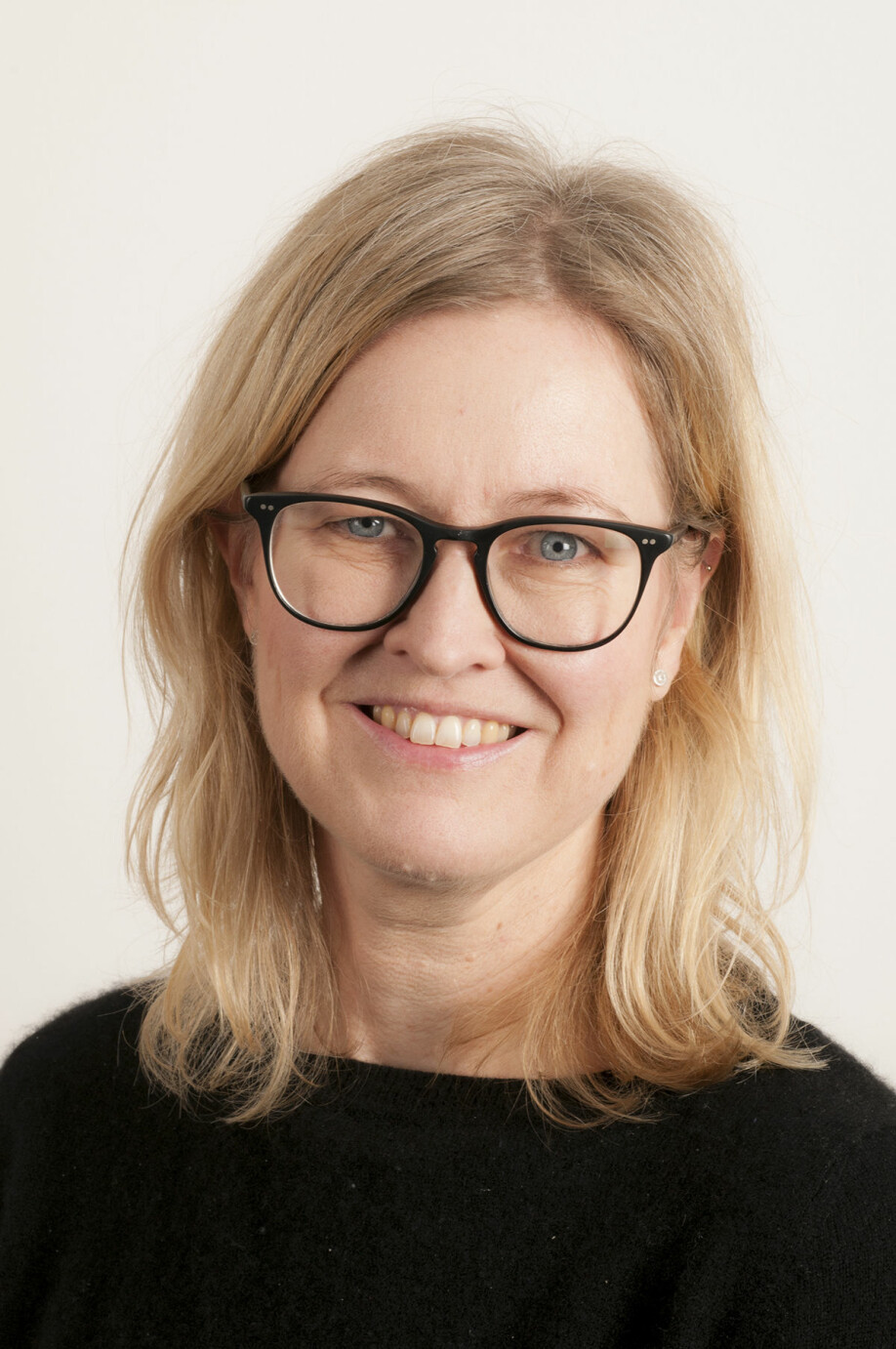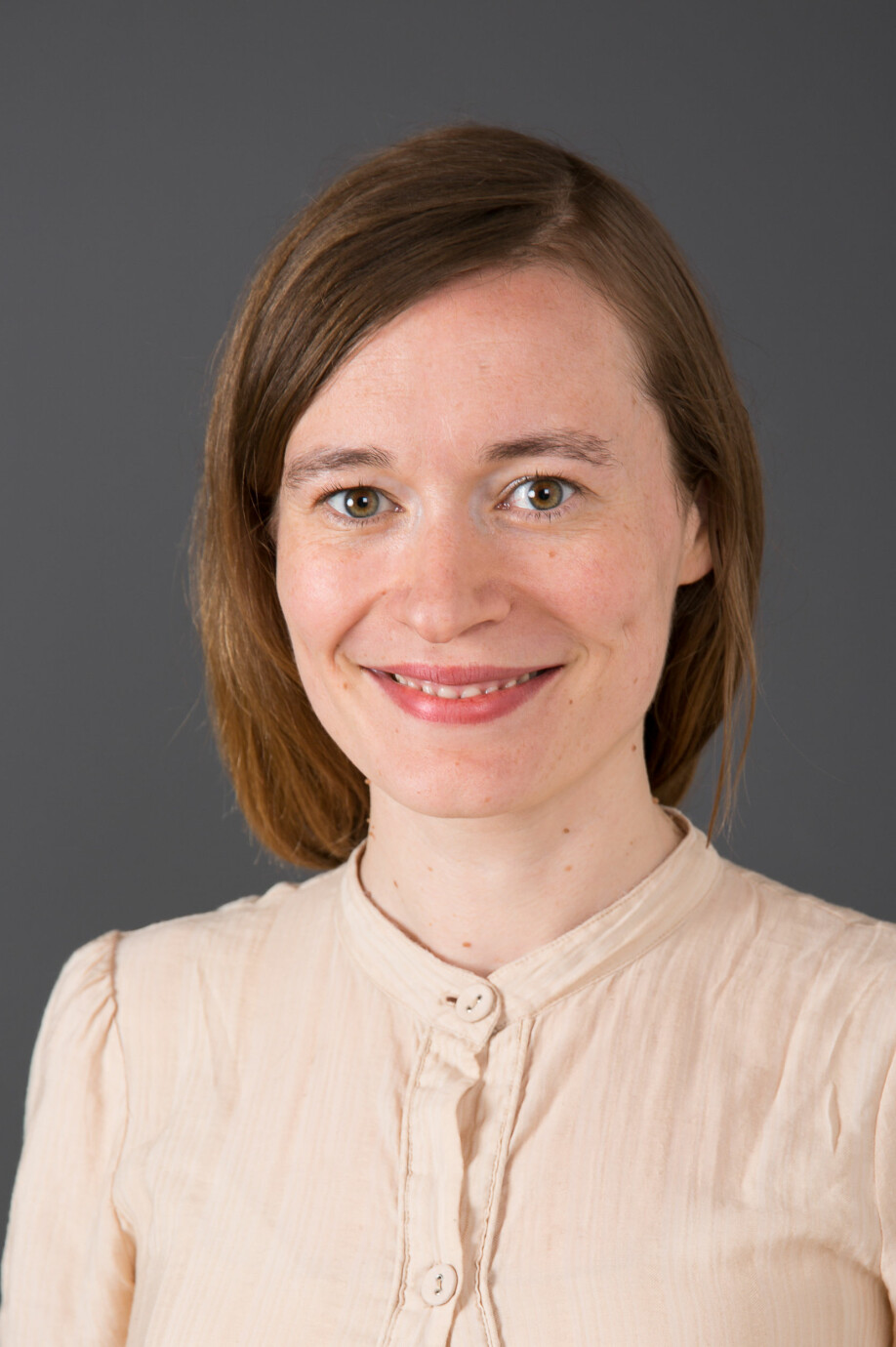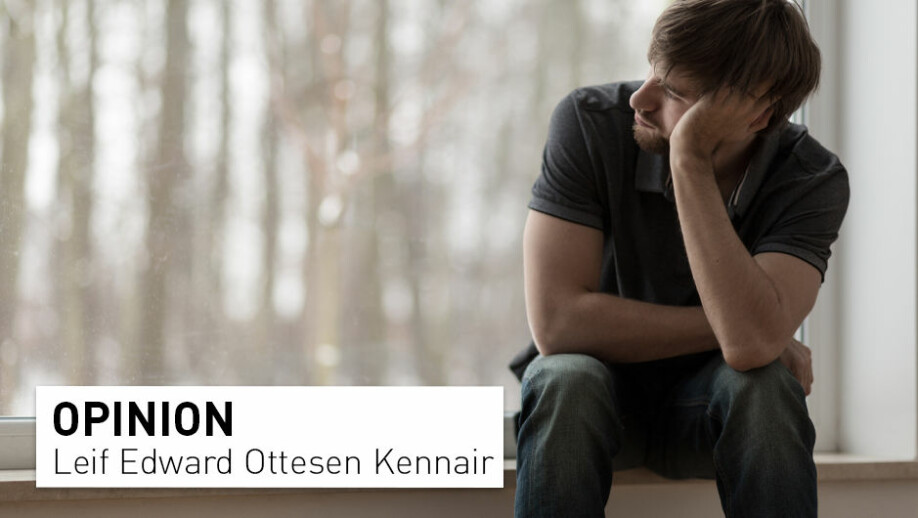
Why are fewer men becoming fathers than before?
One in five men haven’t had children of their own by the age of 50. Fewer and fewer men are becoming fathers. What’s happening to Norwegian men?
Although fewer women are having children than before, not having children is far more common among men.
And the gap between women and men has widened.
Among women, about 11 per cent of 45-year-olds were childless in 2000. In 2019, it was 14 per cent.
The proportion of men without children increased from 17 to almost 25 per cent during the same time period, according to figures from Statistics Norway.
Some men become fathers later, but by the age of 50, more than 20 per cent of men in Norway have no registered children.
What do we really know about childless, or childfree, men?

Less education
He’s found in all walks of life, and the reason he doesn’t have children can be anything from a choice to forego fatherhood to not having the opportunity to become a father. Other men may have stepchildren instead.
“It’s difficult to pinpoint a single cause,” says Trude Lappegård, a sociology professor at the University of Oslo.
She has researched the increasing levels of childlessness in Norway, but so far doesn’t have a good answer.
Nevertheless, researchers have found some commonalities in the diverse group of men without children.
Several studies, including one that Lappegård and colleagues published in 2018, show that men with less education have children less often.
But this also applies to women.
“Previously, the opposite was true among women: those with higher education were most likely to end up childless. Now it's flipped, and women with less education have children less often,” says Lappegård.
She's surprised at that change, since women with higher education lose more money by having children when they take a break from working life.
“It turns all the theoretical explanations upside down. This is unfamiliar territory and we have to come up with new explanations.
Although women have become more similar to men, education seems to have an even stronger influence on whether men have children, according to Lappegård. Because women today have more education than men.
Less education a myth, maybe
It’s not really the education level that determines this, according to Kjell Erik Lommerud, professor of economics at the University of Bergen (UiB).
“It's a myth that childlessness is due to low levels of education. If you’re in good health and have a decent income, you’ll have children as much as anyone else, even with a lower level of education,” says Lommerud.
Together with colleague Astrid Grasdal he has studied just who these 50-year-old Norwegian men are that don’t have children.
The researchers collected information from public registries and followed the entire population until 2014. At that time, 18 per cent of Norwegian-born 50-year-olds were childless – compared with 14 per cent in the year 2000.
So some of the childless men are immigrants.
The 2019 study shows that immigration contributes considerably to the increased infertility numbers among men, in contrast to what other researchers have found previously.
Immigrants might have children abroad who are not in the Norwegian registries. Lommerud and Grasdal therefore focused on men born in Norway between 1959 and 1964.
Education and income are often linked. When the researchers examined education, income and health in combination, they found only very small differences in childlessness among Norwegian men with different levels of education.
Slightly more men who completed upper secondary school were fathers than men who had either a primary school education only or higher education.

Low income
On the other hand, men with low incomes and poor health in their early 30s are more likely to be childless a few years later.
Fewer childless men than fathers are employed, and on average they earn only 68 per cent of what fathers do.
Income and health seem to be even more strongly associated with having children now than they were before.
A survey from the Institute for Social Research (ISF) done this year shows that some men and women think being in a stable relationship is the most important factor when deciding to have children.
A stable financial situation is also important, especially for women. Men are a little more concerned about having a permanent job.
Why has this become so important? The researchers know less about this.
Lappegård thinks it might be because society expects both women and men to contribute to the economy and childcare.
Poor health
Men without children use the primary health care service more than others, which may indicate that they have more health problems.
Lommerud's study shows that there are more disabled people among the childless. Twenty per cent of this group have a disability pension, compared with six per cent of those who are fathers. In total, almost four out of ten men with disabilities receive income through various government schemes. One in ten became disabled before the age of 30, and they become fathers even less often.
Some men who become disabled when young may have extensive health problems that make it difficult to establish a position in working life as well as establishing relationships in their private life.
But Lommerud does not think that is the main reason why so many more men than women remain childless.

A reasonable explanation
Øystein Kravdal also researches childlessness. He is a professor of demography at the University of Oslo and the head of research at the Norwegian Institute of Public Health.
Kravdal believes that it is reasonable that there are generally more childless men than women and that this difference has increased over time.
“Six per cent more boys are born than girls. In addition, men usually enter into relationships with women who are a couple of years younger. In periods when fertility in the country declines, there are fewer women in these younger birth cohorts,” he writes in an email to sciencenorway.no.
Kravdal has recently researched the gap in childlessness between women and men. Preliminary results indicate that it has increased about the same amount in all education groups. The study has not yet been published.
More and more women are pursuing an education, so it’s easy to believe that particularly large differences exist between the sexes among the less educated. But that isn’t the case. Other changes in society may have worked in the opposite direction, Kravdal says.
Poor outcomes
Kravdal believes that men with lower education levels do poorly in many ways.
“They have lower incomes, quite a lot of them don’t have a partner or children, and they die earlier,” he says.
Lommerud has noticed this too.
“Based on our study, we know nothing about how people experience the situation. Maybe they’re happy without children. But I get a little suspicious when childlessness is associated with things that haven’t gone so well in life, like low income and poor health,” he says.
Has anyone actually asked the men themselves?

How many want children?
Sara Cools and Marte Strøm at ISF did just that.
Their survey shows that 79 per cent of men under the age of 30 envisage having children at some point.
“That means that fully 21 per cent of men under the age of 30 have responded that they don’t want children,” Cools says.
“Men want children to a lesser extent than women, but the difference isn’t that big,” she adds.
Among women in the same age group, 12 per cent don’t want to have children.
Although the survey had 7686 respondents, they were not representative of the Norwegian population as a whole.
A representative survey from 2007-08 also indicates that women want children to a greater extent than men.
The vast majority of young adult men want children, according to surveys from other Nordic countries.
Are their responses the same a few years later?
Wishes can change
A study that followed women in the United States for 33 years shows that expectations of becoming a parent can vary throughout life.
A relatively high proportion of the women gave different answers the 19 times they were asked – both among women who had children and those who did not. About 25 per cent said no to children at least once, but only 15 per cent ended up without children. Only 0.5 per cent expected children each time without having any.
Norwegian researchers interviewed about 45 men and women without children at some point in their lives. Everyone expressed a desire to have children then. But some of the men kept postponing becoming a parent – maybe for so long that it would be too late?
The desire for children is situational, says Kravdal.
“Voluntary childlessness is a cumbersome concept. Some people want to have children only if they’re in a relationship and then they don’t find a partner. Others might have been in a relationship and had the opportunity to have children, but postponed it until they were no longer able to. Some are in a relationship and could have kids, but don’t want to. Unfortunately, we know very little about how big these different groups are,” he says.
Are researchers relying more on young people?
The ISF survey does not follow the men over time. Young people’s responses today do not tell us much about what the 50-year-olds wanted when they were young.
But the survey shows that about half of the 258 men over the age of 40 who don’t have children don’t want them either.
“Some of this may be due to a form of post-rationalizing. Some men who have ended up childless might tell themselves that’s what they wanted,” Kravdal says.
The men who responded to the survey differed slightly from the population as a whole. For example, childless men in the study over the age of 40 have a partner or spouse just as often as men with children do. On the other hand, childless men in general live with a partner far less often.
But, Cools believes, there is no reason to trust people’s responses any less when they’re in their 40s than when they’re in their 20s.
She believes the wish to not have children, voluntary childlessness, may be true for even more people than what the survey found.
“If I were to guess, I’d think it less likely that people who aren’t that interested in children would respond to a survey entitled "Desire for children."
Do women dismiss "low status men"?
What about men who want children but don't get them?
Childless ISF survey respondents over the age of 40 tend to earn less than other men. They say that one reason they haven’t had children is that it costs too much.
Concerns about the future, needing a larger home and the sleep deprivation associated with having young children are among the other reasons.
Remaining childless may also be due to women not wanting men with low incomes and poor health, says Lommerud.
“I think a number of men end up being left over,” he says.
The professor calls them "low-status men."
“It seems that women aren’t interested in certain types of men. But this is speculation,” he says.
Reacting to the rhetoric
He is far from the only researcher who has suggested that the increasing number of childless men may be due to women not choosing some types of men.
In their report, Cools and her colleague refer to this common interpretation of why men with low incomes or education levels are less likely to have children.
“I react to someone automatically assuming that the men are the ‘unchosen,’” Cools says.
“It could be that the men don’t want to have kids, or they just fail to meet someone who fits. We don’t know,” she says.
“I don’t like the concept of "not being chosen", says Lappegård.
“I think saying that women choose not to have children with of a group of men is a bit artificial. How people find each other and the reasons for it are complex,” she says.
“Researchers and journalists have contributed to creating the idea that women don’t want men with less education.”
The media writes about involuntarily single men that no one wants and alpha males who have children with several women.
Lappegård says the latter point is also a myth. More women than men have children with several partners, according to a calculation she made some years ago.
Different kind of family life
There are lots of ways to be a family. Some men live with children that they’re not the registered parents of.
“Some people talk about men becoming increasingly marginalized. But we shouldn’t equate their not having biological children with not having children in their lives,” says Lappegård.
“The rate of childlessness among men would probably lower if we removed the ones who have a spouse or partner with children,” writes Kravdal.
Of the childless men aged 50, 3.6 per cent live with children under 18 years of age. This statistic applies to half of the fathers.
The statistics do not say how many have lived with children who have moved out.
Translated by: Ingrid P. Nuse
———
Read the Norwegian version of this article at forskning.no


































